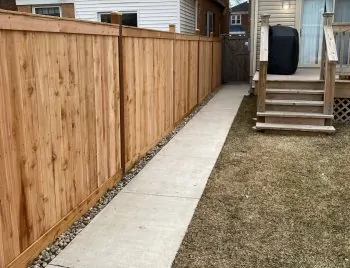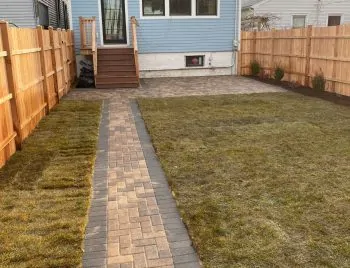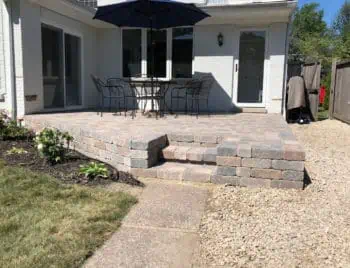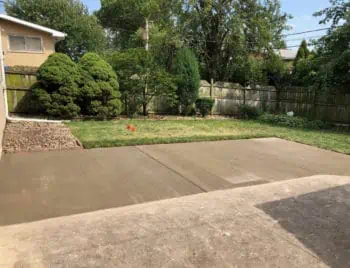Everyone admires a healthy, neat, and well-tended to garden.
If you have a garden of your own, you probably know that getting it to look fresh-off-a gardening magazine is no mean feat.
The good news, there are some things you can do to help your garden along. Mulching is one of them.
Here, learn the benefits of mulching and how to do it right. Your garden will thank you!
What Is Mulching?
Mulching is applying an additional layer on your soil. This layer is placed around bare ground and plants.
This barrier can be made using decomposing organic materials such as bark, leaves, grass clipping, plant material, and wood chippings.
It can also be made using inorganic matter such as rubber mats, chips, pebbles, gravel mulch and crushed rock.
Organic costs less than synthetic mulches and fertilizes the soil. That means it also deteriorates and therefore needs to be replaced occasionally.
Inorganic mulches will provide soil protection and plant preservation for your garden. They, however, do not break down and enrich your soil.
Moisture retention
Mulch helps soil retain its moisture. By somewhat acting like insulation, mulch cuts down on the number of times you need to water your plants, more so in hot summer months.
This is good for your plants, your water bills, and the environment as well.
There can be too much soil moisture retained, if you use only fine mulch, such as sawdust. It is highly recommended using a mix of fine and course mulch in these cases.
Improve Soil Quality
The compounds you use for mulching break down over time. This contributes to soil health as the broken down compounds serve as fertilizer. If you use organic compounds, you have good quality organic fertilizer.
Winterizing
Mulching can help protect and preserve your plants and grass over winter. Once winter is over, your garden is more likely to come back alive
Protection from the elements
Mulch can help your garden and plants better withstand soil erosion. Aside from keeping your soil moist, mulch breaks the fall of rainfall, lessening the force with which water hits your soil.
This helps minimize soil erosion.
Repellent
Cypress, pinewood, and cedar chips, when used as mulch, can repel gnats, ticks and fleas.
Cedar bark for one has natural oils that repel insects. Often, the more fragrant the mulch, the more effective it is in repelling insects.
Weed Control
Mulch keeps weeds down below, limiting the amount to sunlight they receive. This helps keep weeds under control and limits the number of weeds that grow in your garden's open spaces.
Encourage earthworms
If you use organic compounds for mulching, they can encourage earthworms to occupy your garden.
Earthworms help improve nutrient cycling and your soil's structure.
Polishes up your Garden
You can use mulch as a filler by spreading in the empty spaces of your garden.
While there are other fillers you can use, mulch is among the easiest to maintain. It’s also advantageous in that it does not compete with other plants in your garden.
Mulching Trees and Shrubs
Tree mulch should be placed on a recommended depth of 2-4 inches for coarse-textured to medium textured components.
When placing the actual mulch, avoid the mulch coming into contact with the base of the tree. Doing this results in moisture build-up, which encourages bark diseases, insects, pests and decay.
Outwards, place the mulch around the tree extending to a 4-5 foot diameter, or about as far as its canopy extends. That area is called a drip line, because that is where the rain and water usually drips off the canopy. The area defined by the drip line contains about 75% of the tree root system mass. Removing the turf in that area and covering it with mulch eliminates the competition for nutrients between the tree roots and roots of plants such as grass. This can improve the tree health and development.
Use light mulch, materials for younger trees and shrubs. Mature trees can withstand heavier mulch types.
Mulching a garden
Gardening and mulch go hand-in-hand.
If you have recently decided to grow a herb garden and enjoy the benefits of good organic homegrown foods, you might get frustrated continuously by weeds.
This is one thing mulching can significantly help with.
An adequate garden mulch should be 2-3’’ deep. If you place it deeper than this, you risk preventing water from reaching the soil. On the other hand, anything less than two inches is not enough to prevent weeds from growing.
Just as in trees, avoid mounding mulch around the base of your plants. This can cause the plants to rot. In younger plants, mulching the stems can suffocate the plant, hindering growth.
In addition to this, go for lighter, organic mulch types that break down faster, especially for young plants.
Playground Mulch
You find this in a backyard playground, daycare centers, parks, schools, churches, etc.
While garden mulch is used for weed control and to provide plants a good environment to grow, playground mulch is much different.
Playground mulch is often made from a clean sawmill wood mix or wood chips and its function is to keep kids safe when playing outdoors. There is much debate and testing about what type of mulch offer a better impact absorption and is safer. Cedar mulch is the most popular choice and it comes in different forms, such as chips, bark, shavings, sawdust or peelings. Rubber mulch is an alternative to wood mulch, but you have to consider where it is sourced and what kind of chemicals it contains. There is more testing needed for the rubber mulch, but some of it is made out of recycled or shredded tires.
When to Apply Mulch
The best time to apply mulch is mid to late spring. During this period, annual weeds are yet to germinate. Herbaceous plants are typically dormant as well.
Autumn is also a great time to mulch as the majority of plants die back at this time.
Similarly, you can mulch new plants at any time of the year. This offers them a layer of protection from weeds and allows them to retain much-needed moisture.
Mulch Near Me
Here are some nearby business types where you can buy mulch :
- garden center
- home improvement store
- landscaping company
- the City administration offers free mulch, subject to availability. This is a good option for smaller DIY projects, as you have to bring a shovel and containers to transport it in.
Mulch Delivery
R & G Almanza Landscape delivers and installs mulch in Chicago and nearby suburbs.
Some people put off mulching because of the tedious processes involved. Also, if you mulch incorrectly, you can encourage insects and pests and stifle plant growth.
As crucial as mulching is, you only reap the benefits if you carry it out properly. If you would like a hand or have any questions on this, kindly contact us today and speak to one of our professionals.




